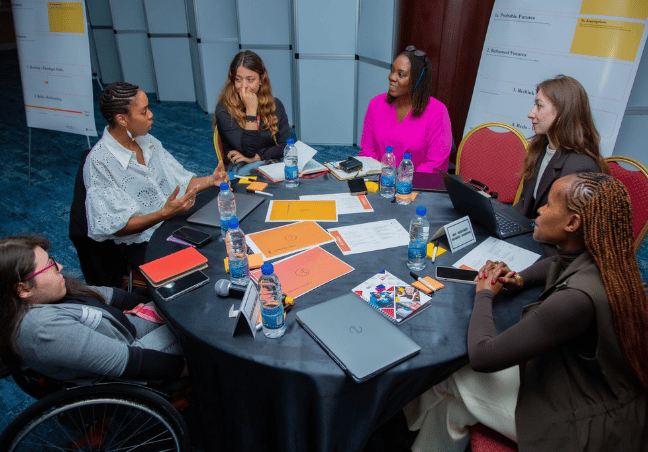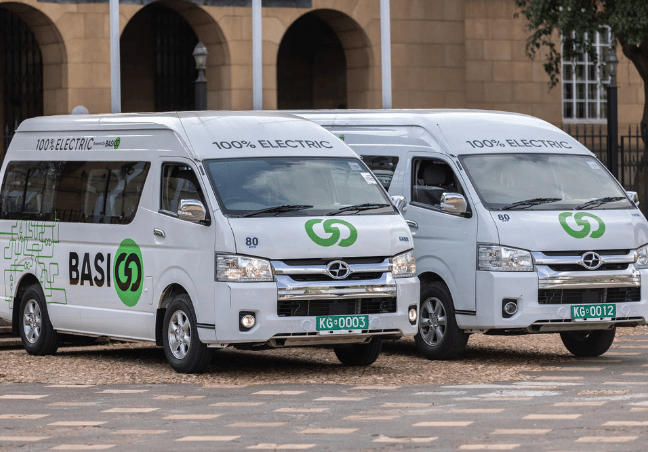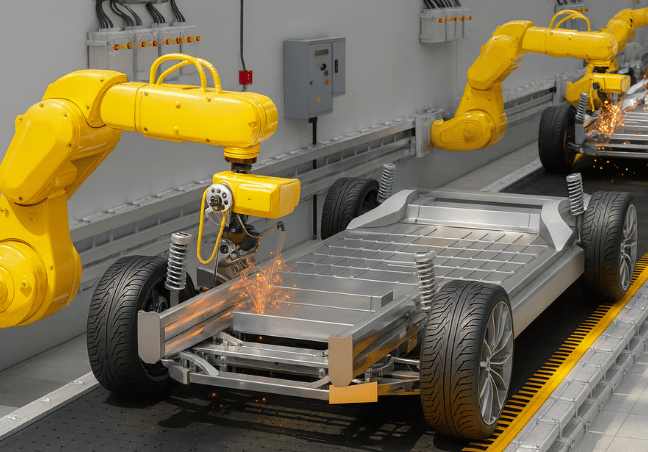- Mobility Rising
- Posts
- BasiGo announces electric van prices
BasiGo announces electric van prices
Dear subscriber,
Working out the economics of EV versus fuel-guzzler is complicated. But the case is usually pretty obvious when it comes to electric vans, especially when capital costs are turned into per-mile running costs. Is this the turning point for African public transport?
Brian Ambani - Editor
Kenyan electric vehicle manufacturer BasiGo will start the delivery of its locally-made electric vans early next year. The company has announced that the 16-seater van will cost about $42,600 while the 18-seater van will cost around $46,500. Buyers have the option to pay as they drive at $0.2 per km. BasiGo has opened reservations for the vans, which have a range of 300 km. |
BasiGo has successfully piloted the use of electric vans for mass transport in Kenya, confirming that it is a financially viable business. Vans are the most commonly used vehicles for mass transport in East Africa.
The main challenge for the rollout of electric vans in Kenya remains the lack of sufficient fast chargers. Vans cover hundreds of kilometres daily, and any stretch of time spent charging is money lost.
Our take: BasiGo should look for sufficient capital to ensure it has the ability to meet demand for both electric buses and vans… Read more (2 min)
Vietnamese conglomerate Vingroup has signed a deal with the DRC to undertake its first EV project in Africa. The two sides will jointly develop a mega-urban project covering about 6,300 hectares, gradually converting more than 300,000 fuel-powered vehicles to EVs, and establishing a comprehensive electric bus network and charging infrastructure. |
Vietnam is becoming a major EV producer and could become an alternative supplier for Africa, which currently relies on China. Vietnam hosts manufacturing facilities for top global automakers.
The DRC programme integrating transport, infrastructure and land development is a model similar to how Vietnam and China set up their own electric mobility transitions. Could it become a blueprint for African smart-city electrification?
Our take: Southeast Asia may pose the biggest challenge to China’s dominance of the African EV market… Read more (2 min)
Aquilastor, a UAE-based company, recently broke ground on a new EV and hybrid plant in Kenya. This is one of the biggest projects in the Mobility Rising monthly Project Tracker. Morocco has new investments in battery materials and control systems, while Egypt’s Mansour Group is targeting an EV factory and Congo is aims to convert fuel vehicles into EVs. |
The proposed projects, worth over $300 million in aggregate, underline the growing shift from import to production on the continent.
Without regional policies to harmonise standards and incentivise local component production, Africa risks remaining a fragmented market vulnerable to foreign supply chain shocks.
Our take: Data-driven market entry strategies will determine long-term success of EV production in Africa… Read more (2 min)


eWaka’s MD Celeste Vogel (in pink) participates in a roundtable discussion in Ethiopia (Source: C. Vogel)
Jobs
💼 Become Head of Customer Success at Zeno (Kenya)
👨🏻💼 Apply for Head of People’s role at Zeno (Kenya)
🏍️ Join MAX as a Ride Testing Officer (Nigeria)
Events
📅 Attend Africa Startup Festival in Kenya (Oct 30)
📅 Book a slot at E-Mobility and Infrastructure Africa Summit (Nov 26)
📅 Register for the EV Revolution Africa Conference in Ghana (Dec 3)
Various
🏍 Spiro receives recognition at NYC stock exchange
🚘 Bako Motors is driving Tunisia’s electric mobility transition
🚗 Changan arrives in South Africa
Seen on LinkedIn
Mitku Asnare, a mobility and logistics consultant, says, “As the transition to electric mobility accelerates, it becomes increasingly important to understand the trends and challenges surrounding EV battery production, usage, and end-of-life management.”


